Shelleyan Orphan - Interview
by John Clarkson
published: 19 / 2 / 2009
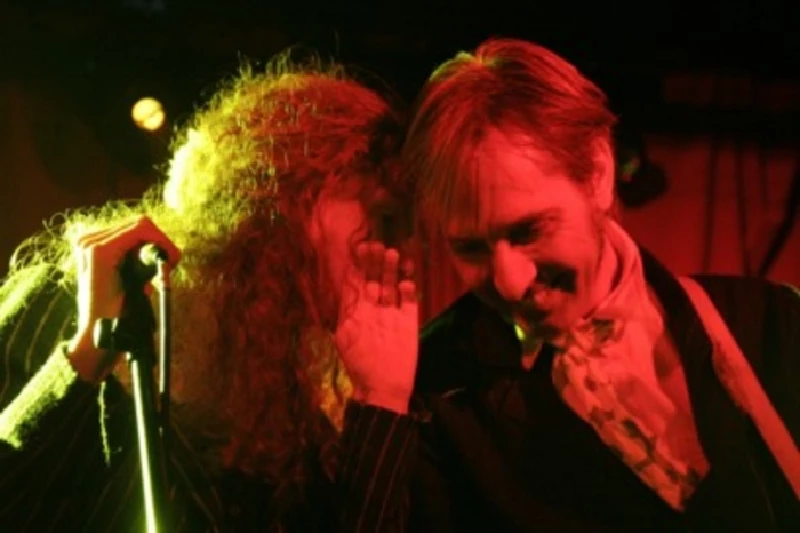
intro
Classically-influenced group Shelleyan Orphan caused surprising controversy in the 1980s. John Clarkson talks to Caroline Crawley and Jem Tayle from the group about those years, their recent reformation and much acclaimed new album, 'We Have Everything We Need'
There are few bands which have drawn such unintentional controversy or grand scale misinterpretation as Shelleyan Orphan. Formed in 1980 in Bournemouth by Caroline Crawley and Jem Tayle, the duo moved to London in 1982 after Crawley abandoned her ‘A’ level Studies in search of a string section and oboist. Their subsequent attempt to merge these classical instruments with their acoustic guitars and two voices earned them an unlikely support in 1984 to the Jesus and Mary Chain at the ICA, and the admiration of Geoff Travis, who subsequently signed them to his Rough Trade label. A memorable appearance on ‘The Tube’ in which they played their set as an artist also on stage with them created a painting drew them a wide audience, but as many detractors as it did admirers. Their debut album, ‘Helleborine’, (1987), named after an orchid which is alleged to have the power to cure madness, followed shortly afterwards and caused further debate. While fans found their marriage of acoustic pop, swirling strings and pastoral Romanticism enchanting, much of the rock press savaged them, dismissing them as ‘pretentious’ and, in part because of Crawley’s long flowing mane of hair, they were dubbed with the title of being ‘Pre-Raphaelite Fruitcakes’, a phrase that would stay with them. A second album ‘Century Flower’, entitled after a flower which only blooms once in its lifetime, followed in 1989, and earned them a lengthy support slot with the Cure on their stadium ‘Prayer’ tour to promote their bestselling ‘Disintegration’ album. Shelleyan Orphan recorded one last album in their original lifetime, ‘Humroot’ (1992), which shared the same name as Tayle’s childhood dog, and then disbanded shortly after its release. Crawley and Tayle reformed Shelleyan Orphan, some years ago, shortly after the birth of Crawley’s daughter. Their fourth album, ‘We Have Everything We Need’, upon which they collaborated on several tracks with the Hungarian National Radio Orchestra, was released to surprisingly solid reviews at the end of last year. They have also returned recently to playing live after a similar gap of sixteen years. Pennyblackmusic spoke to Crawley and Tayle about their early years together, the ‘Tube’ performance and their reformation. PB : Shelleyan Orphan was formed in Bournemouth in 1980. How did you first meet ? Were you at school together ? JT : No. We just came from the same area of Bournemouth and kept bumping into each other. We used to frequent the same places and then eventually when we did get together we discovered that we had a mutual love of music and a whole variety of other things as well and that is how it evolved really. PB : From its beginning Shelleyan Orphan had one foot in the classical camp. You experimented from the outset with wood instruments and orchestral arrangements. What were your early influences ? JT : We loved Nick Drake, Marc Bolan, particularly Tyrannosaurus Rex, and lots of soul music. I loved Marvin Gaye and Donny Hathaway. Perhaps you wouldn’t see those influences in there, and then Caroline liked Joy Division. It was a real mixture. CC : A lot of our influences were literary. I was really into Shakespeare when we met. It wasn't very trendy to be into Shakespeare at the time at all, but I really studied Shakespeare and got to the place where I realised what an amazing writer he is. Once you can get past the language, the stories and the poetry in Shakespeare are amazing. JT : Poetry was a very big thing for both of us as well. The Shelley thing in our name came about because I saw a TV programme about him. After I had seen that, I went to the library and picked up a book about his life. I found out from that that his heart was actually buried in Bournemouth and there was this whole romantic tale around it. It seemed appropriate at the time to give it that name. PB : There is this famous story about you getting signed to Rough Trade after Geoff Travis saw you at a Jesus and Mary Chain concert. What happened there ? JT : We had moved to London by that stage. We wrote songs for a couple of years and tried to find musicians at the colleges there to form a band. The band began as me and Caroline and by that stage also had a string trio and an oboe as well. It was one of our first gigs. At the time the Jesus and Mary Chain weren’t well known at all and nor were we. It was for a rock week at the ICA and so we were part of the bill as were they. In the few weeks building up to the gig that was when their notoriety started to develop. We were thinking, “Oh, blimey. I don’t know how we are going to fit with that,” but actually when we played the audience just listened and applauded politely and really liked us. We got an encore. Then we went off and the Mary Chain came on and within a couple of minutes beer glasses were flying everywhere and the whole place had erupted. Geoff Travis was there. He saw both acts. We had gone back to Bournemouth to see our folks at Christmas and when we got back he phoned up and said that he wanted to sign us. Before then we had done the usual thing of trading our demo tape around the record companies, and several of them had said they had liked it, but they didn’t know what to do with it. They couldn’t find a camp to put it in. Geoff, however, had the foresight to put it out. We were really lucky. PB : You were accused of being pretentious and attracted a lot of pretty derogatory comments, which tends to happen to any band who dares to be different. It seemed to those who did like you that you were just being what you were. Did you ever set out to cause controversy ? JT : Not at all. We wanted to enjoy making music and being part of the music scene, but we wanted to do it our way and in a way that fulfilled us. At that point in time if we had used a straightforward band format it wouldn’t have worked. It wouldn’t have worked for us and so it wouldn’t have worked for anyone else. To describe us as pretentious is such a crazy thing to say when you look at pop. Basically all of pop is pretentious. CC : We have always been who we are. The difference now is that we are even more comfortable with it. As you get older you are more accepting and comfortable with what you are. We used to feel a bit embarrassed when people focused on what we thought were the wrong things such as calling us Pre-Raphaelites just because of my hair. JT : We were young. We were enjoying the fact that we could express ourselves. If you don’t fit into a pigeonhole, people find it very difficult. They try to create something for you. That whole term, “Pre-Raphaelite pop”, there is no such thing. One journalist called us that and then after that everybody did. Even now people still call us a “pre-Raphaelite fruitcakes (Laughs).” CC : You get tagged with things. 'The Tube' performance with our string quartet and the way we looked and the way that we that we were quite different at the time. PB : That performance was one of the classic ‘Tube’ performances. You brought a painter on stage with you. JT : We thought that we looked so static on stage and so boring that we needed something else happening as well. The inspiration came from Rolf Harris. It wasn’t to do with making some huge statement. It was the fact that Rolf Harris could paint a picture in five minutes. We thought it would be a great idea if the painter was able to paint the picture in as long as it took us to finish our set. The guy used to sell his pictures and he was able to make money out of it. PB : You went on a stadium tour with the Cure in 1989. How did you attract the interest of Robert Smith ? CC : He had seen us on 'The Tube'. Dave Allen, who had produced all our records, was also the producer of their records and, as soon as we had finished ’Century Flower’, Robert asked for copies and then he put it to a band vote. It was between us and another band. It was split equal ways apparently and Robert made the deciding vote to get us on the tour. JT : We did the whole European leg and then they asked us to go to America as well. It was great. It didn’t necessarily extend into record sales, but it got us widely known and in a way that we can still make records now. All these years on people still remember us from that period. PB : Is it true that you had only played half a dozen gigs or so up until that point ? JT : It was a few more than that, but not many more. It was always hard for us to get gigs just because of our line-up. When we were asked to do it, it was definitely a bit daunting. We did a gig just before we did the Cure tour in which we supported the Wedding Present at the Town and Country Club in London and we were booed off. We just weren’t the right sort of band to be doing that. The following day we were off on a month long tour around Europe with the Cure and we met with a much better reception. CC : We weren't into double figures. 'The Tube' performance was the fourth ever gig that we did. As you might imagine it was a sort of deep end experience. I was so nervous at firs that it actually stopped me from singing and so our drummer at the time hypnotised me. He just gave me this really simple session of hypnotherapy and that just changed everything so that suddenly I didn’t feel uncomfortable on stage anymore. After that, within a couple of weeks, we had slotted right into things. It was quite amazing how much we grew as a band and as people from doing that. We were proper rock 'n' roll, weren’t we ? (Laughs). No, not really. We still played Scrabble and did things like that backstage. It was really good though. It was great fun. PB : You broke up in 1992 shortly after the ‘Humroot’ album. Why did you split at the time ? JT : Basically Rough Trade were going under. We had been working together for a long time. We didn’t even really think about breaking up. It just happened. It wasn’t even a break-up. It just seemed like the right time not to be doing anything. We both went off and did different things. Caroline had a project called Babacer with Boris Williams from the Cure and Roberto Soave who was in the band at the time and in which I was involved in as well, and I had my own band as well, Elephantine. That was just a three piece. We kept ourselves busy. CC : There wasn't any one moment in which we made a decision to not do it anymore. We just drifted into it. We have always remained close. I live in Bath nowadays with my daughter who is six and a half and her Dad, and Jem lives next door. PB : Do you think that in many ways you were a band out of time ? JT : There was no doubt about that. We weren’t trying to be different on purpose. We were, however, definitely out of time. We were purely acoustic when we began. We also used strings. People had used strings before but as a light backing force while we had used it very much to the fore. I think people picked up on that later on. I have heard that bands like Belle and Sebastian have been influenced by us. I don’t really know about that, but I suspect there might have been a few people out there who have been. PB : ‘We Have Everything We Need’ has been attracting really healthy reviews and you have been much better received this time around. Have you been surprised at that ? CC : We have had great reviews this time around. It would have been great to have had more in the cynical music press. Some of those papers have gone, "No, we don’t even want to review that. That’s that that Pre-Raphaelite band," which is a shame. We have been surprised though. It has been really flattering. JT : We think that it is a really good album. We are really happy with it which is unusual for us. We usually have things that we can be grumpy about. While it has been well-received, we still find it hard to find a home. I think people are still unsure of where to put us, which always baffles me in a way because when you create your own thing you don’t realise perhaps you are being obscure. Caroline’s voice fits in easily to anything around today. I can’t see why that should be a different thing. There is enough of a pop element there as well, so it should be a success on the radio. PB : Where does the title for the album come from ? JT : It comes from Caroline’s daughter, Inky. We were playing a game one day. We were on a carpet and she was pretending that it was a boat. She was putting loads of things on it and at the end of it she said, “Yeah. We have everything we need.” I just happened to be recording everything we were doing when we were playing this game on my computer and I linked up little sections of it on the title track. You can hear her voice on the title track saying just that. PB : How do you write your songs ? Is there a set format ? JT : No, we write individually and together. It can come by either lyrics or by melody and sometimes we will be rehearsing together and something will come up. There is no one set formula. Quite often I will write a song and Caroline will sing it and vice versa. It is a mixture to be honest. We share duties. PB : Which instruments do you each play ? JT : I play guitar and a bit of keyboards. I have also got a hurdy gurdy as well. The woodwind and the string instruments have become our trademark in a way over the years, but we get other musicians in to play the other instruments. It is just incredibly exciting working with those kind of musicians. CC : I play guitar and piano. I haven't played on this record because with having Inky there wasn't time for me to be doing that as well. I just concentrated on my singing. PB : Yet having said that, Jem, you are also listed on the album as having written the orchestral arrangements ? How did you do that that ? JT : I did the arranging by computer. I have Garage Band with the orchestral parts. PB : Part of the album was recorded with the Hungarian National Radio Orchestra. Did you have to go to Budapest for that ? JT : Yeah. We did. Caroline and I were there for four days. It was a great experience. We hadn’t heard what it was going to sound like until we were over there and listened to the live takes. CC : It was an amazing experience. The conductor was fantastic. I don’t think the parts would have been so alive if he hadn't been for him. He really got behind the ideas of the songs and gave them a lot of energy. JT : In hindsight we could have done it slightly differently. It would have been nice to have had a day of rehearsing for instance and for fine tuning everything, whereas we went straight in and almost right away recorded. We just went for it. It was a fantastic experience. They were great players. There were sixteen strings involved at different points and also a bassoon and an oboe. PB : The lyrics on this record are a lot less abstract and a lot more direct emotionally. Was that a conscious decision ? CC : That is age for you. I think that when you are young you don’t mean to hide things, but you are much more self-conscious. If you are into poetry you will always find ways of sticking things in that are not that direct. We have just dropped that habit. I am very comfortable about doing that now and Jem feels he has made advances by not having to hide stuff because he is more able to be brave about what he is thinking and feeling. JT : Caroline has always written more directly than I have. I tend to mask things , but, yeah. I think we are just older. I used to find it quite difficult to write about myself, but now definitely I feel a lot freer there. It has really helped things . People are able to relate to us more. PB : The cover has you and Caroline dressed up like characters from ‘A Midsummer Night’s Dream’. You have mentioned already that you were into Shakespeare. Were you in some ways laughing at yourselves as well ? CC : I think we are much able to do that than we were. We were always being ourselves, but now we can look back and see why people thought that it and the whole Pre-Raphaelite fruitcale thing was funny. We didn't at the time. We are into those things, so why not ? JT : It is the best photo of me that I have ever had (Laughs). One of our mutual likes was ‘A Midsummer Night’s Dream’ anyway. We had a cover, but we didn’t think that it was strong enough and then we had this idea of hiring all these animal heads and seeing what came out of it. One of the ideas was to do a Titania and Bottom picture. I know that people might say that it is whimsical, but we like it and I think that it helps you understand what is inside the CD. PB : One Little Indian , who released ‘We Have Everything We Need’, will also be releasing a Shelleyan Orphan box set. What is going to be on that ? CC : There will be tghe first three albums. There is an album of outtakes and demos which I think will only be interesting to a real hardcore fan and then there is a DVD with our 'Tube' performance on. PB : You have recently started playing gigs again after a long absence. You played London before Christmas and Glasgow at the start of the year. How have you enjoyed that experience ? CC : That has been the best part. There are enjoyable elements in all the other things we do. Writing is, however, quite solitary and then recording is really hard work and can be quite tiring. Playing is the bit where we go out and celebrate all that work . The first gig in London was such a treat. People knew every word of every song, old or new. That was such a surprise. It was very moving. It felt like there was such a lot of love for us in the room. We had never really felt that before. PB : Will there be more shows then ? JT : We want to do a lot more. Even though we have got good reviews, things are very slow. It is hard to get gigs because we haven’t been around for so long, so you can’t guarantee an audience. That can change overnight if you get radio play and TV, but at this stage it has been slow. We are playing as and when we can. We want to do a proper tour. CC : If anybody offers us the chance to do a full-length tour, however that manifests itself, we will grab it with both hands. We just want to be touring as much as possible. PB : Final question. What other plans have you got for the future ? CC : We have already started thinking about the next album. We have already both started writing material for it. This is like the gestation period. We hope to begin work on recording on it during the latter period of the year. JT : We want to do scores, playing live, writing, anything really and to have enough motivation make the next record. PB : Thank you for your time. The photographs that accompany this article were taken by Lyse Tranzeat.
Picture Gallery:-
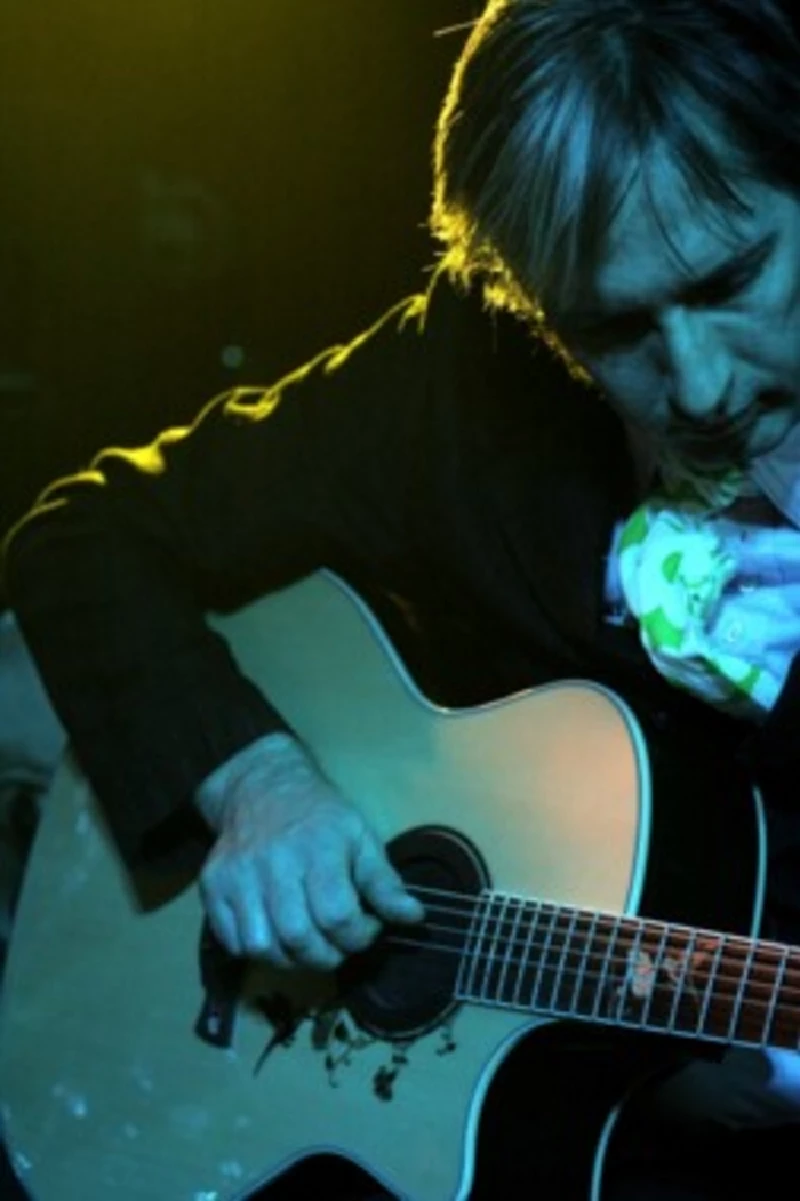
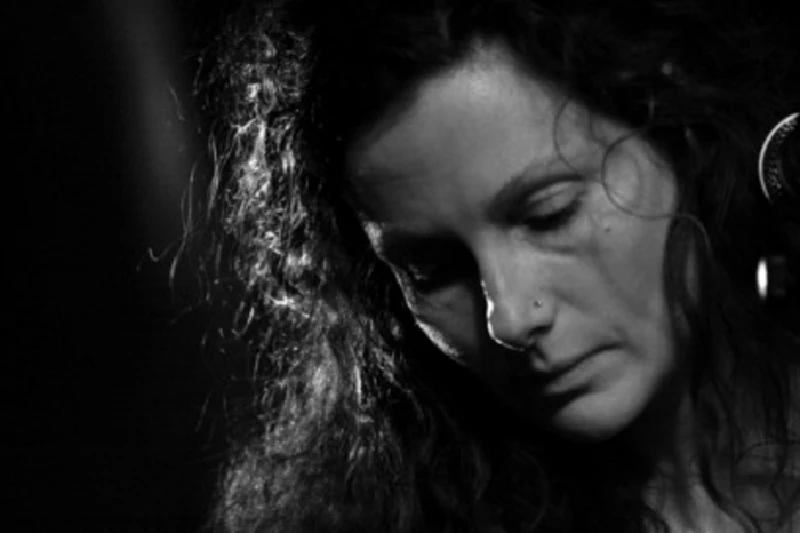
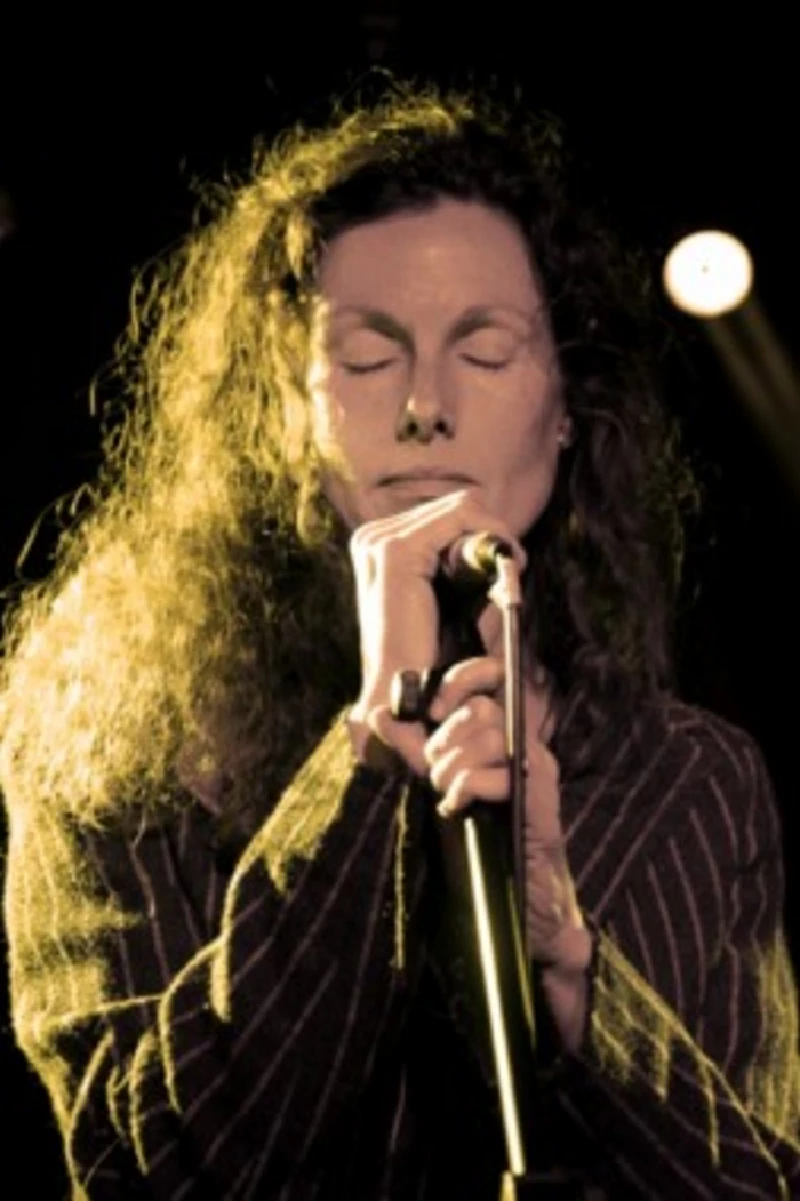
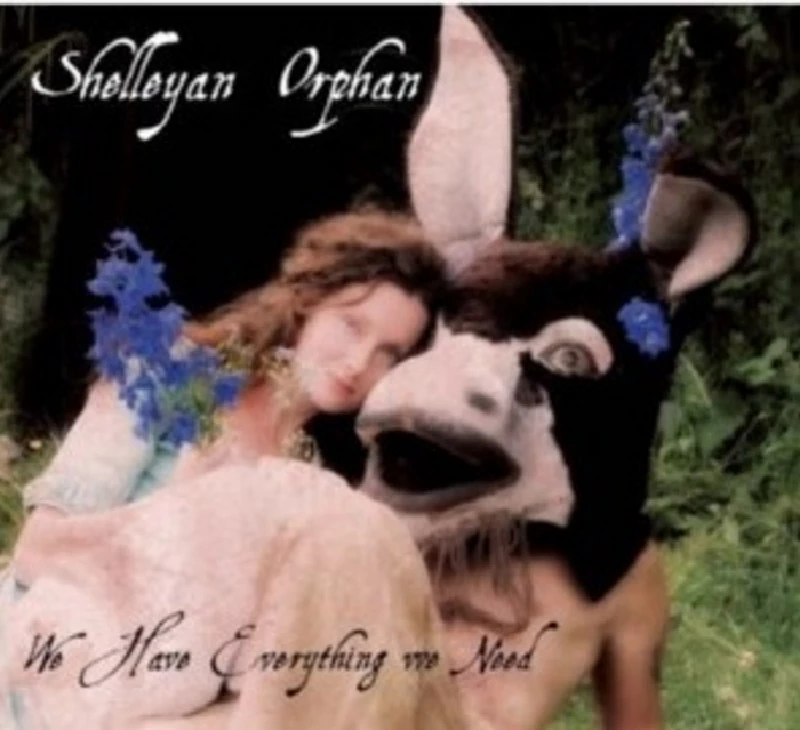
Visitor Comments:- |
| 254 Posted By: Fabien, France on 03 Feb 2010 |
|
get a life, Frank!!!
Shelleyans's first three albums present a very interesting and rarely seen evolution within the pop music, going from classical to jazz and to pop, which is true will touch rather the romantic ones than the 'nu-metal' fans. although, for those who take care to listen, they are, in their own way, in my opinion, as powerful as My Bloody Valentine can be (and I love MBV), emotionnally speaking.
'We Have Everything We Need' now sounds sometimes celtic and well crafted. That's a fourth turn. Can't wait for their fifth release.
|
| 179 Posted By: Frank, London on 11 May 2009 |
|
I wouldn't buy a used tissue from a man who plays the hurdy gurdy.
|
live reviews |
|
Slaughtered Lamb, London, 16/4/2009 |

|
| At a sparsely attended gig at the Slaughtered Lamb in London, Anthony Strutt watches reformed 80s duo Shelleyan Orphan play a lushly beautiful and intimate set |
reviews |
|
We Have Everything We Need (2008) |
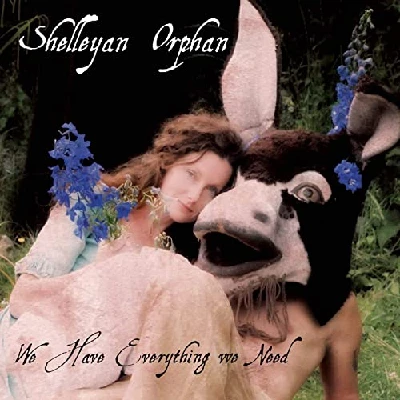
|
| Experimental, eclectic alternative pop on fine fourth album from Bournmouth-based duo Shelleyann Orphan, who are back after a sixteen year hiatus |
most viewed articles
current edition
Carl Ewens - David Bowie 1964 to 1982 On Track: Every Album, Every SongArmory Show - Interview with Richard Jobson
Colin Blunstone - Thalia Hall, Chicago, 16/7/2025
John McKay - Interview
Visor Fest - Valencia, Spain, 26/9/2025...27/9/2025
Bathers - Photoscapes 1
Billie Eilish - O2 Arena, London, 10/7/2025
Robert Forster - Interview
Loft - Interview
Sir Tim Rice - Interview
previous editions
Heavenly - P.U.N.K. Girl EPManic Street Preachers - (Gig of a Lifetime) Millennium Stadium, Cardiff, December 1999
Beautiful South - Ten Songs That Made Me Love...
Oasis - Oasis, Earl's Court, London, 1995
Trudie Myerscough-Harris - Interview
Prolapse - Interview
Pixies - Ten Songs That Made Me Love...
Coldplay - Wembley Arena. London, 16/8/2022
Boomtown Rats - Ten Songs That Made Me Love....
Simon Heavisides - Destiny Stopped Screaming: The Life and Times of Adrian Borland
most viewed reviews
current edition
Amy Macdonald - Is This What You've Been Waiting For?Sick Man of Europe - The Sick Man of Europe
Phew, Erika Kobayashi,, Dieter Moebius - Radium Girls
Lucy Spraggan - Other Sides of the Moon
Davey Woodward - Mumbo in the Jumbo
Alice Cooper - The Revenge of Alice Cooper
Bush - I Beat Loneliness
Blueboy - 2
Suzanne Vega - Flying With Angels
Cynthia Erivo - I Forgive You
Pennyblackmusic Regular Contributors
Adrian Janes
Amanda J. Window
Andrew Twambley
Anthony Dhanendran
Benjamin Howarth
Cila Warncke
Daniel Cressey
Darren Aston
Dastardly
Dave Goodwin
Denzil Watson
Dominic B. Simpson
Eoghan Lyng
Fiona Hutchings
Harry Sherriff
Helen Tipping
Jamie Rowland
John Clarkson
Julie Cruickshank
Kimberly Bright
Lisa Torem
Maarten Schiethart